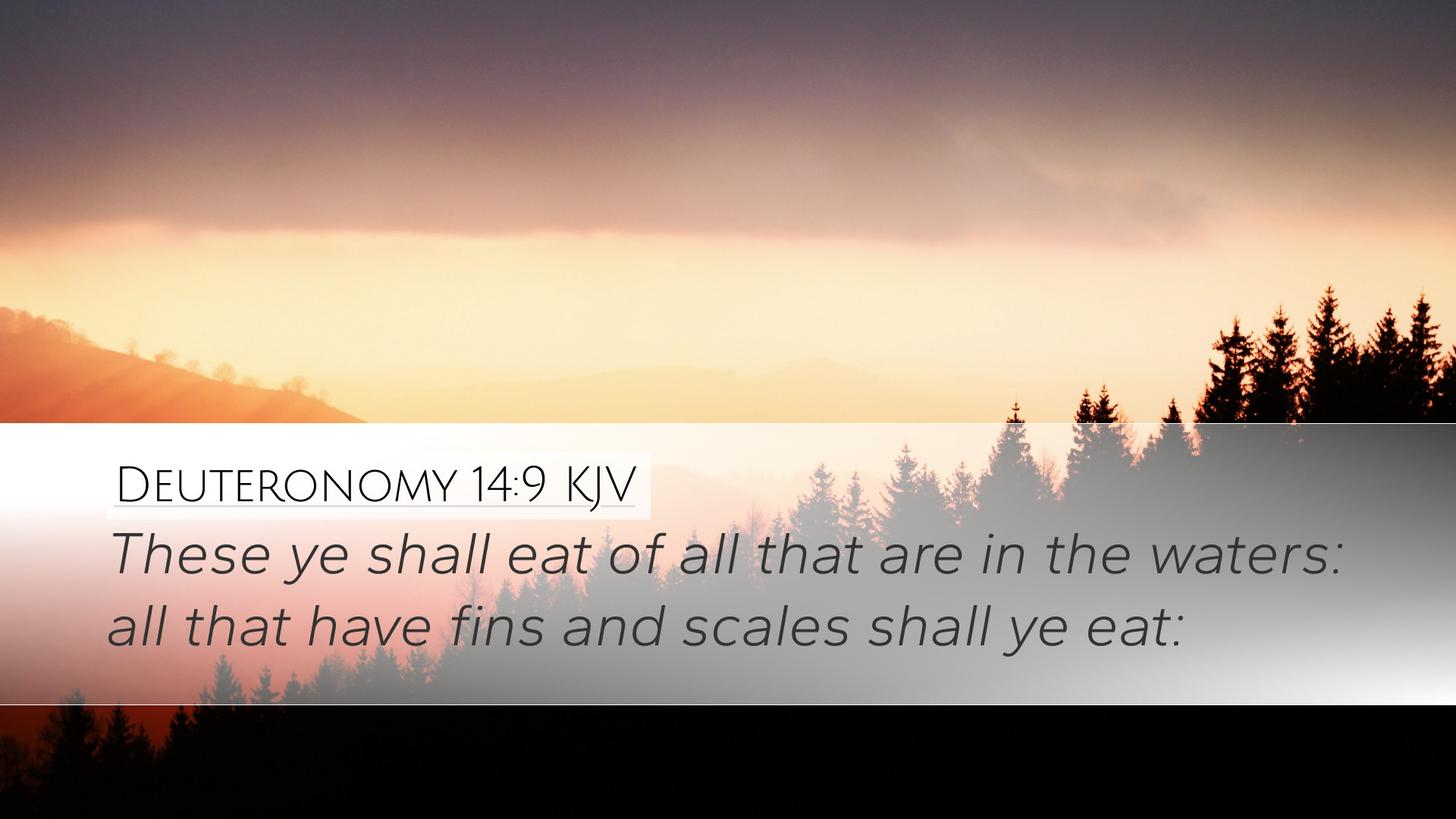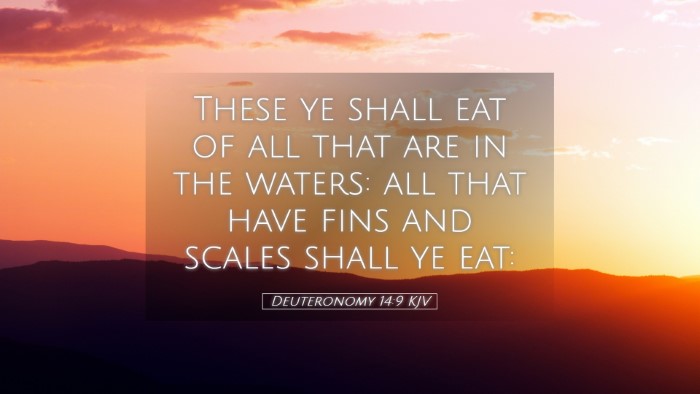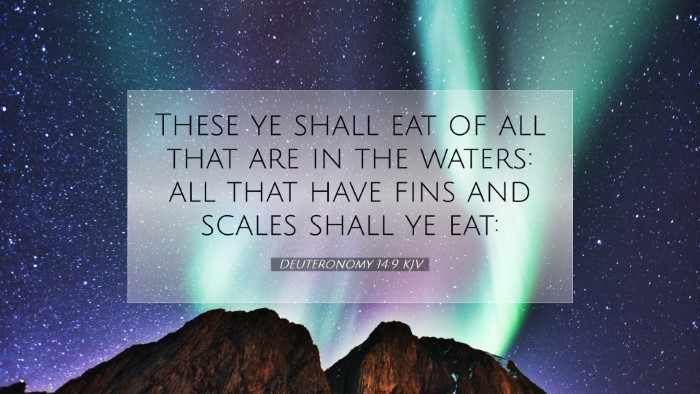Deuteronomy 14:9 - Commentary and Insights
Deuteronomy 14:9 states: "These you may eat of all that are in the waters: you may eat all that have fins and scales." This verse lays out specific dietary laws for the Israelites, focusing on the types of aquatic animals deemed clean and permissible for consumption.
Context and Significance
In the broader context of the Pentateuch, these laws in Deuteronomy serve multiple purposes, including the establishment of the Israelites' identity, the promotion of holiness, and the separation from surrounding nations. Matthew Henry notes that the dietary laws are part of a covenantal relationship with God, emphasizing that God desires His people to live by a standard that reflects His holiness.
Understanding Clean and Unclean Animals
The distinction between clean and unclean animals reflects broader themes in the Mosaic Law. Specifically, the stipulation that only those aquatic creatures with fins and scales are acceptable serves several theological and moral purposes:
- Symbol of Purity: Albert Barnes posits that the requirement for fins and scales suggests a higher standard of purity. The clean animals are often seen as representing what is holy and acceptable before God, in contrast to those that are unclean.
- Spiritual Implications: Adam Clarke draws attention to the spiritual lessons behind these laws. The idea of fins and scales can be viewed metaphorically, representing aspects of life that are not worldly and refuse the pollution of sin.
- Social and Health Considerations: The dietary restrictions can also be viewed through the lens of health. Matthew Henry comments on how these laws likely promoted the health and sustenance of the Israelite community, steering them away from unhealthy habits that could arise from consuming forbidden animals.
Historical Background
Historically, the Israelites lived in a diverse environment with various nations, each having their own dietary practices. This law served as a distinct marker of Israelite identity among the surrounding pagan cultures. Barnes emphasizes that the dietary laws were pivotal for maintaining the Israelite's unique relationship with God and set them apart as His chosen people, underscoring their commitment and obedience to His will.
Theological Reflections
From a theological standpoint, this verse invites an exploration of the underlying principles that govern God's creation. The regulation of what can and cannot be eaten reflects God's sovereign authority over all aspects of life, including diet. Each restriction can be seen as an invitation to trust in God's provisions:
- Trust in Divine Wisdom: The clear delineation of what is to be eaten emphasizes the importance of following God’s commands rather than subjective interpretation or cultural norms.
- Food as a Gift from God: Recognizing that everything in creation belongs to God and is received as a gift can profoundly alter one’s perspective on consumption and gratitude.
Applications for Today
The practical implications of Deuteronomy 14:9 extend beyond dietary regulations. For pastors, students, and theologians, this verse prompts consideration of how modern believers enact the principles of holiness, distinction, and obedience in their daily lives.
- Holiness in Daily Life: The call to purity and cleanliness translates into a broader context of living a life set apart for God, not just in diet but in all areas including ethics, relationships, and worship.
- Living by God’s Standards: There remains an essential inquiry into what it means to live by God's standards in a contemporary world rife with moral ambiguity. This verse serves as a basis for reflecting on the values and practices that are most aligned with a God-honoring life.
- Community Identity: Just as the Israelites were identified by their obedience to dietary laws, Christians are called to identify with Christ in their attitudes, behaviors, and choices, fostering a community that reflects God's character.
Conclusion
Deuteronomy 14:9 is much more than a dietary guideline; it encapsulates the essence of a covenantal relationship, affirms God’s sovereignty, and underscores the call to live in holiness. As pastors, students, and theologians engage with this text, a deep appreciation for the intersection of faith, practice, and divine instruction emerges, enriching their understanding of God’s desires for His people.


